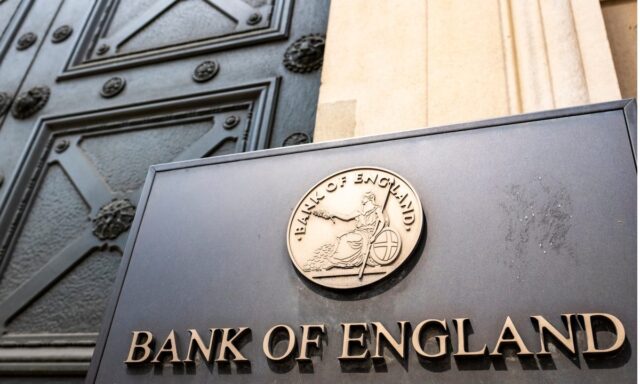
The United Kingdom is known for its vibrant and highly developed banking sector, which plays a pivotal role in the nation’s economy. These financial institutions, both traditional and digital, facilitate economic growth, promote investment, and provide a broad range of financial services to individuals and businesses.
In this comprehensive article, we will explore the UK’s banking sector, its significance, and its dynamic nature, with a specific focus on key insights and developments.
The UK Banking Sector

The UK banking sector is remarkably diverse, encompassing a rich tapestry of financial institutions that collectively form the backbone of the nation’s economy. This multifaceted landscape includes traditional high-street banks, investment banks, member-owned building societies, and pioneering digital banks, each with its unique role and contribution to the financial ecosystem, tailored to meet the diverse needs and requirements of the populace.
High-Street Banks
At the heart of the UK’s banking sector, stand venerable institutions like Barclays, HSBC, Lloyds, and NatWest. These financial stalwarts are renowned for their extensive repertoire of services, which cater to a wide spectrum of financial needs.
Personal and business banking, mortgages, loans, and investment products are all part of their offering. With a pervasive network of branches and ATMs spanning the entire country, high-street banks ensure that financial services are readily accessible to the general public, underscoring their critical role in the everyday lives of UK citizens.
Investment Banks
Investment banks, exemplified by global titans like Goldman Sachs and JPMorgan, occupy a pivotal position in the UK’s financial milieu. Their expertise lies in the intricate realms of advising corporations on mergers and acquisitions, underwriting securities, and trading an array of complex financial instruments.
These operations are not confined by borders, contributing significantly to the UK’s status as a global financial hub, with the City of London as its epicenter, where monumental financial transactions shape the global economy.

Building Societies
Building societies, epitomized by household names such as Nationwide and Yorkshire Building Society, represent an alternative and community-focused facet of the banking sector.
These member-owned financial institutions specialize in providing essential services like savings accounts and mortgages, meticulously tailored to meet the unique financial needs of their members.
Their community-oriented approach goes beyond mere financial transactions, emphasizing the welfare and prosperity of their members as they collaborate to achieve their financial goals.
Digital Banks
The advent of digital banks, including dynamic entities like Monzo, Revolut, and Starling Bank, has brought about a revolution in the traditional banking landscape. These fintech pioneers have harnessed innovative technology-driven solutions to reimagine the banking experience.
Their mobile-based platforms offer not only convenience but also efficiency in international payments and user-friendly financial management tools, resonating profoundly with a tech-savvy and mobile-first generation. Their agility and user-centric approach have made them particularly appealing to younger consumers who demand seamless and user-friendly financial services.
Banking Regulation in the UK

The banking sector in the UK is subject to rigorous regulatory oversight. The primary regulatory authority is the Financial Conduct Authority (FCA), which ensures that banks adhere to strict regulations designed to protect consumers and maintain the stability of the financial system. Additionally, the Prudential Regulation Authority (PRA) supervises banks to ensure they have sufficient capital and risk management processes in place.
The Bank of England, the UK’s central bank, plays a vital role in setting monetary policy and ensuring financial stability. Its functions include issuing currency, regulating banks, and managing the overall economic health of the nation.
Before you open a bank account in UK, familiarize yourself with the UK banking sector. According to their latest analysis:
Resilience Amidst Challenges
The UK banking sector has demonstrated remarkable resilience in the face of economic challenges, including the impact of the COVID-19 pandemic. Banks swiftly adapted to the changing economic landscape, implementing digital solutions and providing financial support to individuals and businesses during challenging times.
Digital Transformation
The rise of digital banks has accelerated the digital transformation within the sector. Traditional banks are investing heavily in digital infrastructure to compete with these nimble challengers. The shift towards online and mobile banking has become increasingly prevalent, and customer expectations for seamless, convenient digital services are on the rise.
Sustainability and Ethical Banking
There is a growing emphasis on sustainability and ethical banking. Many banks in the UK are incorporating environmental, social, and governance (ESG) principles into their operations and investment strategies. This reflects a broader global trend towards responsible finance and a commitment to addressing environmental and social challenges.
Innovation and FinTech Collaboration
Collaboration between traditional banks and fintech companies is on the rise. This synergy fosters innovation, with traditional banks benefiting from fintech expertise in areas like payment solutions, while fintechs gain access to established customer bases and regulatory experience.
Challenges of Regulatory Compliance
Compliance with evolving regulatory requirements continues to be a significant challenge. The banking sector must stay updated on an array of regulatory changes, including those related to data protection, financial crime, and consumer protection.

Conclusion
The UK’s banking sector stands as an indomitable pillar in the edifice of the nation’s economy, delivering an extensive spectrum of financial services that cater not only to individuals but also to the thriving businesses that drive economic growth. Spanning from the time-honored high-street banking institutions to the trailblazing digital fintech pioneers, this sector is a testament to its enduring dynamism and unwavering resilience.
Amid the ever-evolving landscape of finance and technology, the UK’s banking sector stands firm, primed to meet the ever-increasing demands of its diverse clientele. It is not merely a passive observer but an active participant in the grand narrative of progress. As the tides of change surge forward, it listens acutely to the voices of its customers, striving to meet their expectations for greater digitalization, sustainability, and ethical banking practices.
In the midst of an interconnected world, the UK’s banking sector remains a beacon of adaptability, ever watchful of the global trends that transcend borders. The regulatory landscape, in constant flux, is met with vigilance and responsiveness. Technological advancements, as they unfold, are embraced, harnessed, and integrated into the sector’s very fabric, ensuring that it does not merely keep pace with progress but forges ahead as a pioneering force.
In this dynamic arena, the UK’s banking sector does not simply exist; it thrives. It is not merely relevant; it is indispensable. The sector’s remarkable ability to withstand the test of time, while consistently evolving and adapting to meet the demands of an ever-changing world, ensures that it remains, and will continue to be, an unassailable bastion of strength, a powerhouse that underpins the nation’s economic vigor, and a symbol of financial stability and innovation.







